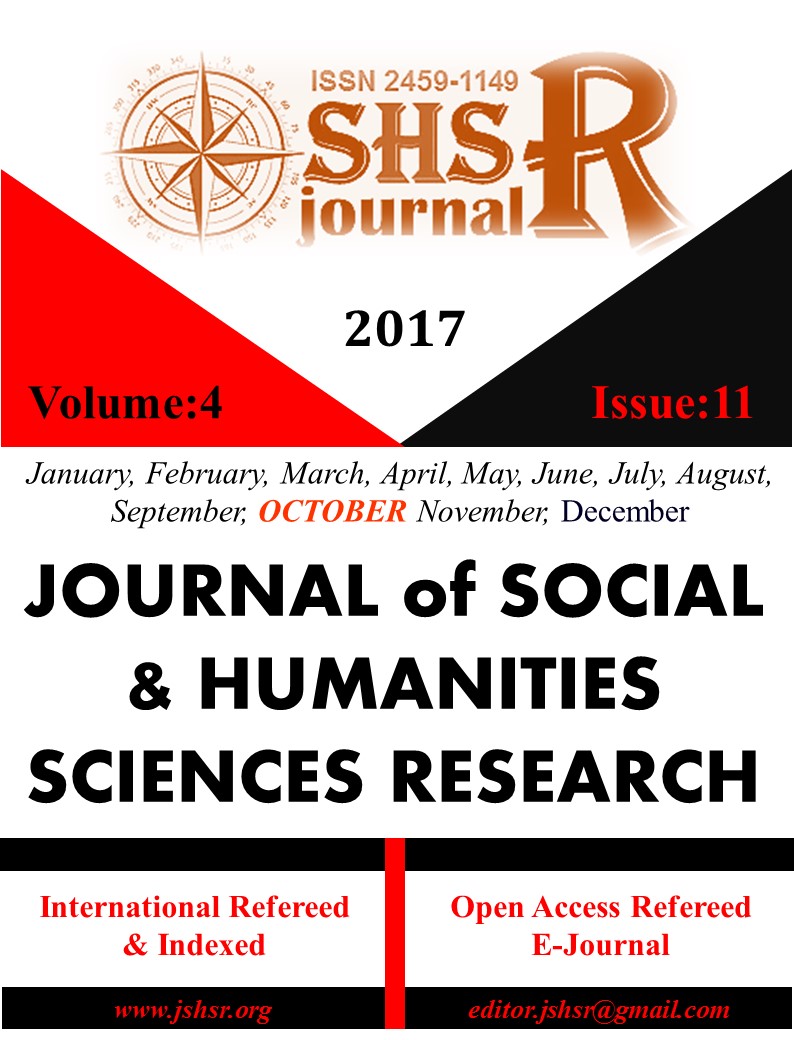THE UNIVERSITY YOUTH PERCEPTION TOWARDS THE PEOPLE OF THE CITY: A STUDY ON GÜMÜŞHANE UNIVERSITY STUDENTS
DOI:
https://doi.org/10.26450/jshsr.69Keywords:
Consumption Society, Urban People, Expenditure Level, Student societyAbstract
Universities are the institutions that are expected to contribute to the economy of the city and to the social development. This expectation does not arise only from the institutional contribution of the university but rather function of the students who come from different regions and settled in the city for a few years. On the other hand, in communities which have been closed to external influence for many years, it is possible that the mass of students is perceived as a foreign factor changing demography and culture forcefully. Nevertheless, the expectation of the university's economic contribution leaves its social development function behind. This negative relationship can be explained with the local economy, politics and culture as well as the global modern culture.
In this study aims to investigate the expectations, attitudes and behaviours of Gümüşhane University students towards university and city. For this purpose, randomly selected students of Gümüşhane University were asked how they perceive the city's people and the university. The survey including information on the main demographic and familial structures of the students was conducted between March 1, 2017 and April 30, 2017, thematic analysis was carried out and results obtained from the participants were compared. In the research, it was found that university youth offered significant contributions in the promotion of the city, and its socio-economic and cultural changes, whereas the city inhabitants could not respond to the expectations of the students and there is a significant gap in the relationship and interaction between the university youth and the inhabitants of city.
Downloads
Published
How to Cite
Issue
Section
License
Copyright (c) 2017 INTERNATIONAL JOURNAL OF SOCIAL HUMANITIES SCIENCES RESEARCH

This work is licensed under a Creative Commons Attribution 4.0 International License.


